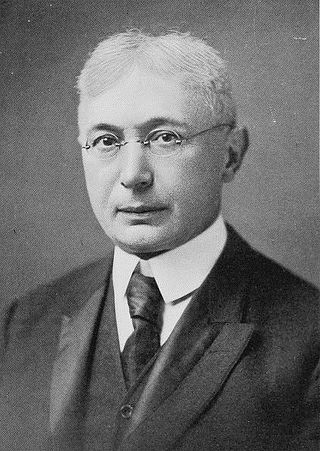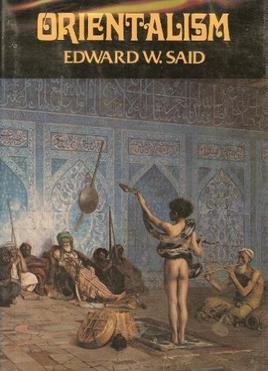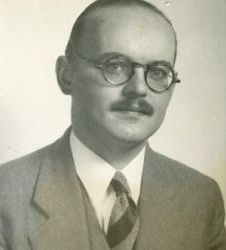
In art history, literature and cultural studies, orientalism is the imitation or depiction of aspects of the Eastern world by writers, designers, and artists from the Western world. Orientalist painting, particularly of the Middle East, was one of the many specialties of 19th-century academic art, and Western literature was influenced by a similar interest in Oriental themes.

James Henry Breasted was an American archaeologist, Egyptologist, and historian. After completing his PhD at the University of Berlin in 1894, he joined the faculty of the University of Chicago. In 1901 he became director of the Haskell Oriental Museum at the university, where he continued to concentrate on Egypt. In 1905 Breasted was promoted to full professor, and held the first chair in Egyptology and Oriental History in the United States.
Mlaḥsô or Mlahsö, sometimes referred to as Suryoyo or Surayt, is an extinct or dormant Central Neo-Aramaic language. It was traditionally spoken in eastern Turkey and later also in northeastern Syria by Syriac Orthodox Christians.
Indology, also known as South Asian studies, is the academic study of the history and cultures, languages, and literature of the Indian subcontinent, and as such is a subset of Asian studies.
Barzani Jewish Neo-Aramaic is a modern Jewish Aramaic language, often called Neo-Aramaic or Judeo-Aramaic. It was originally spoken in three villages near Aqrah in Iraqi Kurdistan. The native name of the language is Lishanid Janan, which means 'our language', and is similar to names used by other Jewish Neo-Aramaic dialects .

Maurice Bloomfield, Ph.D., LL.D. was an Austrian Empire-born American philologist and Sanskrit scholar.
The American Society of Overseas Research (ASOR), founded in 1900 as the American School of Oriental Study and Research in Palestine, is a non-profit 501(c)(3) organization based in Alexandria, Virginia, which supports the research and teaching of the history and cultures of the Near East and Middle Eastern countries. ASOR supports scholarship, research, exploration, and archeological fieldwork and offers avenues of disseminating this research through their publications. ASOR also provides support for undergraduates and graduates in institutions of higher education around the world pursuing studies of the history and cultures of the Near and Middle East.
Daniel Henry Holmes Ingalls Sr. was the Wales Professor of Sanskrit at Harvard University.

Orientalism is a 1978 book by Edward W. Said, in which the author establishes the term "Orientalism" as a critical concept to describe the West's commonly contemptuous depiction and portrayal of The East, i.e. the Orient. Societies and peoples of the Orient are those who inhabit the places of Asia, North Africa, and the Middle East. Said argues that Orientalism, in the sense of the Western scholarship about the Eastern World, is inextricably tied to the imperialist societies who produced it, which makes much Orientalist work inherently political and servile to power.
The American Oriental Society was chartered under the laws of Massachusetts on September 7, 1842. It is one of the oldest learned societies in America, and is the oldest devoted to a particular field of scholarship.

Ephraim Avigdor Speiser was a Polish-born American Assyriologist and translator of the Torah. He discovered the ancient site of Tepe Gawra in 1927 and supervised its excavation between 1931 and 1938.

Oriental studies is the academic field that studies Near Eastern and Far Eastern societies and cultures, languages, peoples, history and archaeology. In recent years, the subject has often been turned into the newer terms of Middle Eastern studies and Asian studies. Traditional Oriental studies in Europe is today generally focused on the discipline of Islamic studies, and the study of China, especially traditional China, is often called Sinology. The study of East Asia in general, especially in the United States, is often called East Asian studies.

Tawfiq Canaan was a pioneering Palestinian physician, medical researcher, ethnographer, and Palestinian nationalist. Born in Beit Jala during the rule of the Ottoman Empire, he served as a medical officer in the Ottoman army during World War I. During British rule, he served as the first President of the Palestine Arab Medical Association founded in 1944, and as the director of several Jerusalem area hospitals before, during, and after the 1948 war. Over the course of his medical career, he authored more than thirty-seven studies on topics including tropical medicine, bacteriology, malaria, tuberculosis, and health conditions in Palestine, and contributed to research that led to a cure for leprosy.

The Bajaur casket, also called the Indravarma reliquary, year 63, or sometimes referred to as the Avaca inscription, is an ancient reliquary from the area of Bajaur in ancient Gandhara, in the present-day Federally Administered Tribal Areas of Pakistan. It is dated to around 5–6 CE. It proves the involvement of the Scythian kings of the Apraca, in particular King Indravarman, in Buddhism. The casket is made of schist.

Peter Alexis Boodberg was a Russian-American scholar, linguist, and sinologist who taught at the University of California, Berkeley for 40 years. Boodberg was influential in 20th century developments in the studies of the development of Chinese characters, Chinese philology, and Chinese historical phonology. He has been described as "one of the most original and commanding scholars" of the 20th century.

Edward Wadie Said was a Palestinian American academic, literary critic and political activist. A professor of literature at Columbia University he was among the founders of postcolonial studies. Born in Mandatory Palestine, he was a citizen of the United States by way of his father, a U.S. Army veteran.
William Norman Brown was an American Indologist and Sanskritist who established the first academic department of South Asian Studies in North America and organized the American Oriental Society in 1926. He was the Professor of Sanskrit at the University of Pennsylvania for most of his academic career. He was president of the Association for Asian Studies in 1960. He is considered the founder of the field of South Asian Studies, which he pioneered in his career over four decades at the University of Pennsylvania, where he helped to found the Department of Oriental Studies (1931), and later single-handedly founded the Department of South Asia Regional Studies (1948). These departments are now survived by the departments of East Asian Languages and Civilizations, Near Eastern Languages and Civilizations, and South Asia Studies. W. Norman Brown also founded the American Institute of Indian Studies, which was located in the Van Pelt Library at the University of Pennsylvania. Brown was elected to the American Philosophical Society in 1946.
Walter Eugene Clark, was an American philologist. He was the second Wales Professor of Sanskrit at Harvard University and editor of the volumes 38-44 of the Harvard Oriental Series. He translated the Aryabhatiya of Aryabhata with critical notes which was published in 1930, by the University of Chicago Press.
Richard G. Salomon is the William P. and Ruth Gerberding University Professor in the Department of Asian Languages and Literature at the University of Washington.

The Palestine Oriental Society was a society for the "cultivation and publication of researches on the ancient Orient", founded on the initiative of Albert T. Clay in Jerusalem in 1920. It was established at a time when control of Palestine had recently passed from the Ottoman Empire to the British following the end of the First World War, and when archaeology was being professionalised and modernised.










